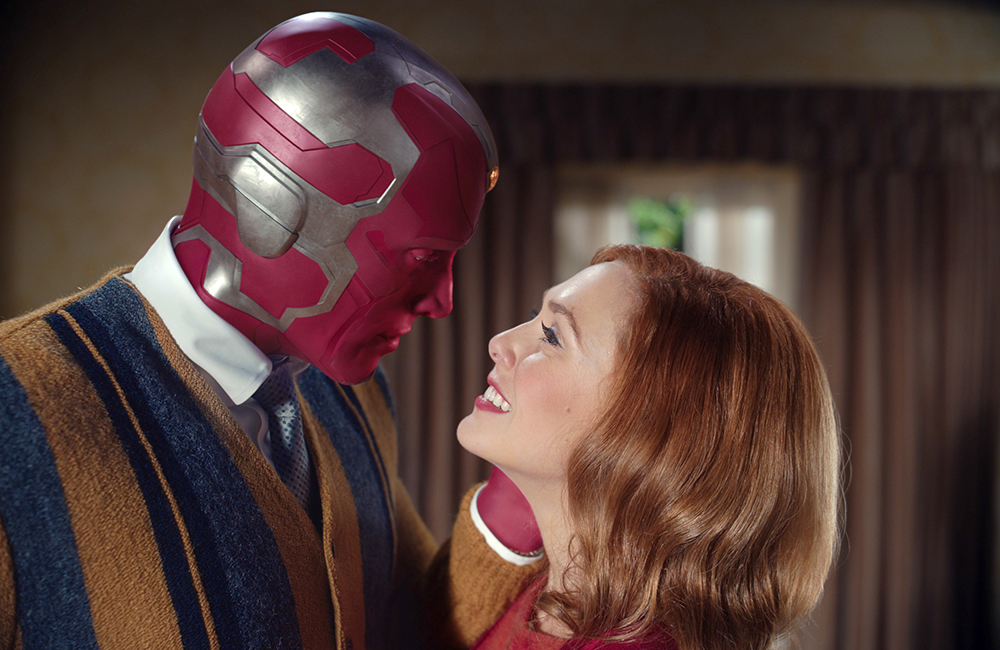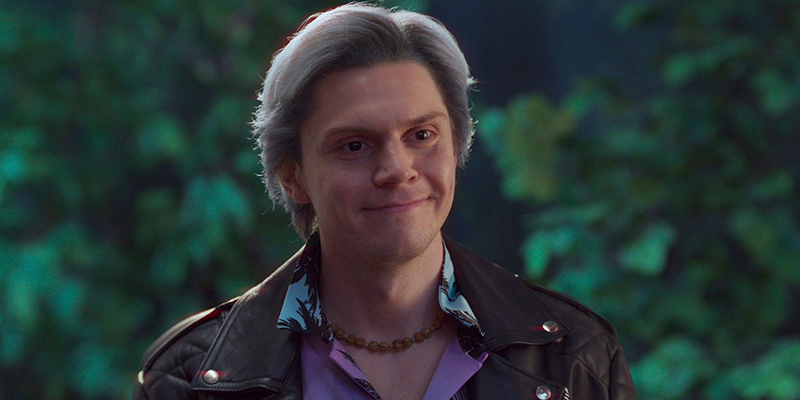A Spoilery Appreciation Of What Marvel Accomplished With WandaVision

Although Marvel Studios had to delay many of its projects in 2020 due to the ongoing COVID-19 pandemic, the drought is finally over. Kevin Feige promised Marvel fans that a slew of miniseries exclusive to Disney+ would be released as part of the Marvel Cinematic Universe’s Phase 4. While I am excited to see The Falcon and the Winter Soldier as well as Loki, I was blown away by WandaVision. The nine-episode miniseries that ran from January to March of 2021 centers around the Avengers Wanda Maximoff and Vision as they try to live out their fantasy life in the suburban town of Westview, New Jersey.
I kept a close eye on WandaVision and watched many analysis videos on YouTube that helped me to formulate my own opinion and now, I am happy to share it here. As a disclaimer, this will be a SPOILER-based review of WandaVision. If you have not seen it, please do yourself a favor and get a Disney+ subscription to view this amazing show!
Where WandaVision succeeds most is in its acting and the many ways it pays homage to classic sitcoms. Unlike other MCU films or Marvel properties in-general, WandaVision is not an action-based thriller and the series significantly focuses on the character development of Wanda Maximoff as the Scarlet Witch. Many episodes are stylistically based on television shows that Wanda Maximoff watched before she became an Avenger. For example, the 1950s episode references The Dick Van Dyke Show while the 1970s episode is based on The Brady Bunch. With every sitcom change, the characters change outfits and usually have some quirky personality change that makes you feel like you are progressing through the history of sitcoms with them. Wanda’s situated reality and “The Hex” that she traps the citizens of Westview in are ultimately used for her to cope with her grief.
Throughout the run of the miniseries, we see Wanda deal with the different stages of grief until the final episode where Wanda learns to let go of her attachment to the version of Vision she constructed. The show (especially the eighth episode) wastes no time in referencing the death of Wanda’s parents, the death of Quicksilver (from Avengers: Age of Ultron), and the death of Vision (from Avengers: Infinity War) as all of these traumatic events are brought to Wanda throughout the course of the series. Both Elizabeth Olsen and Paul Bettany got their chance to shine in the spotlight throughout this series as they not only capture a great on-screen romance but display a wide range of talents.
WandaVision also focuses on the organization S.W.O.R.D (possibly the successor to S.H.I.E.L.D in the MCU, but a partner organization in the comics) as they try to rescue the citizens of Westview. FBI agent Jimmy Woo (played by Randall Park, who is returning from Ant-Man and the Wasp), Darcy Lewis (played by Kat Dennings, returning from the Thor films), and newcomer Monica Rambeau (played by Teyonah Parris), the daughter of Maria Rambeau from Captain Marvel all get their time to shine. Monica also gets her superpowers in this series. While it was a nice introduction, she will clearly get more time to develop her powers in Captain Marvel 2. However, I think the show could have done away with the S.W.O.R.D subplot and remained fine. The focus was not on them and clearly some of these fan-favorite characters did not need to return. I was scratching my head as to why an event such as “The Anomaly” did not call for the need of an Avenger, particularly Doctor Strange, who could wield magic like Wanda can.
WandaVision had set up Wanda as the perpetrator of her own Hex. The show used its earlier episodes to show that Wanda clearly had power over the citizens of Westview and could freely dispatch anyone she deemed to be a threat (such as Monica in the third episode). For weeks, many fans were speculating if Wanda was the villain or if there was another person behind the scenes. While this show makes me feel it justified Wanda as an anti-hero, I just did not like the decision to reveal Agnes as the witch Agatha Harkness (portrayed by Kathryn Hahn). While I think Kathryn did an amazing job portraying this character and clearly had a lot of fun in this role, as indicated by the “Agatha All Along” sequence), I just did not see her as a compelling villain compared to the likes of Thanos and Erik Killmonger.

While the MCU has its own variant of Quicksilver (Pietro Maximoff), who was portrayed by Aaron Taylor-Johnson in Avengers: Age of Ultron, WandaVision introduces Evan Peters as Quicksilver. To many, like myself, who were watching the episodes as they aired, I was blown away by the reveal of Evan Peters. Prior to the MCU, Evan Peters played Quicksilver in the 21st Century Fox’s X-Men film series. Disney (the current owner of Marvel Studios) purchased 21st Century Fox Studios and its properties in 2019 allowing them to own the X-Men film franchise. Many, including myself, believed that Evan Peters’ introduction into the MCU was the first drop of Marvel’s incorporation of mutants into their universe or a formulated crossover between the MCU and X-Men franchises but both of these turned out to be false. In the final episode of WandaVision, it was revealed that Evan Peters was a normal citizen named “Ralph Bohner” who was controlled by Agatha. While the little nod to the X-Men was nice, I just felt that what they did with Evan Peters was a wasted opportunity. I hope that Marvel Studios takes the time to develop their own mutants in the future (whether or not they pull from Fox’s X-Men franchise).
I think that WandaVision shows us what the MCU is capable of outside of their major films. The fact that they are using Disney+ to showcase adventures of side-characters and further develop them is great and I look forward to seeing what Marvel Studios has in store as they go forward with Phase 4.



